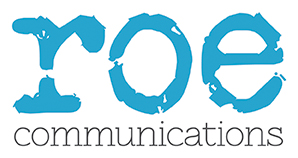In business school communications, time reigns supreme as the ultimate currency.
As renowned jazz musician Miles Davis once asserted, “Time isn’t the main thing. It’s the only thing.” Even decades after his passing, Davis’s wisdom resonates profoundly in a world of perpetual busyness.
His sentiments seem especially prescient in the world of business school communications right now.
Unsurprisingly, business schools, and those responsible for promoting them, have had to deal with the tidal wave that was the COVID pandemic. The fallout for business education has been massive. It includes the transformation towards digital education, new competitors, a flat MBA market and new demands from students on everything from AI to the metaverse.
It has been a testing time for business school marcomms teams, who often feel they are leaping from one crisis to the next, without catching their breath.
High expectations
One of the biggest difficulties is the expectation that business school communications teams will deliver more with static or diminishing resources.
This reality is underscored by the findings of our recent research report, “Knowing Me, Knowing You,” conducted in collaboration with CarringtonCrisp and EFMD, which gathered insights from 105 marketing communication professionals across 25 countries.
The findings paint a stark picture.
When asked to name their biggest challenge, over half (50%) said that short-term thinking was their biggest obstacle.
But lack of resources also loomed large. 44% cited lack of budget as a major challenge, and 38% spoke of staff shortages in their department – making them the second and fourth biggest challenges overall.
Whilst there have been some budget gains, 35% said that their budget had stayed the same over the last three years, and 29% expect it to remain the same over the next three.
Time invested wisely
In the face of such challenges, the pivotal question arises: how can individuals make meaningful contributions amidst seemingly insurmountable odds?
The answer lies in the smart allocation of time.
Rather than trying to do everything and be everything to everyone, successful business school communications teams prioritise activities that yield the biggest impact, avoiding the temptation to be all things to all people.
They ask:
- Does this activity align with our school’s long-term strategic objectives?
- Does this differentiate our school amongst our target audiences?
- Are we working as smartly here as we can?
- How will we measure success and show impact?
By directing their focus towards initiatives that truly matter, these schools cultivate reputations grounded in purposeful action rather than frenetic activity.
In short, they recognise that in business school communications, time invested wisely yields the greatest returns.
Anyone interested in going deeper into the research can download a free copy of Knowing Me Knowing You HERE.


